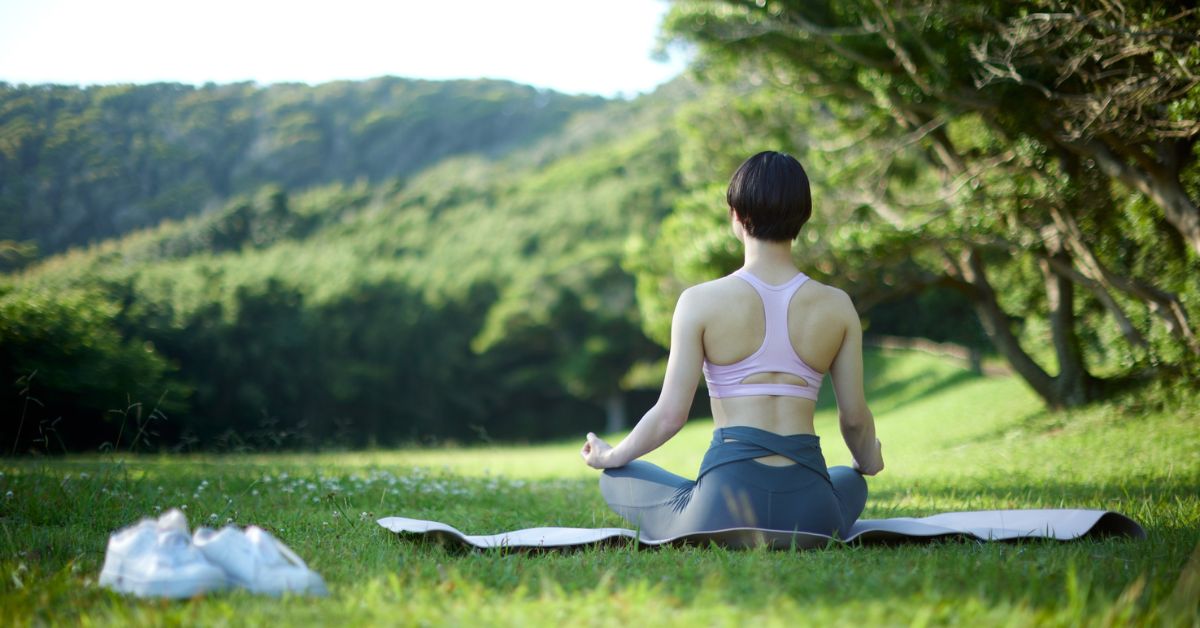Do you feel exhausted even after a full night’s sleep? Stressed even when there’s nothing immediately pressing? Maybe you’ve been cooped up indoors, glued to screens, or stuck in routines that leave you mentally drained and physically sluggish. It’s easy to overlook how powerful a dose of nature—fresh air, green spaces, natural sounds—can be for your wellness. When your mind and body are disconnected from nature, fatigue, anxiety, and even physical stiffness often follow. But reconnecting outdoors isn’t just a luxury—it’s a powerful tool for restoring balance and optimizing wellbeing.
Why Solving This Matters
- Mental Health: Studies show that exposure to nature lowers cortisol (the stress hormone), reduces rumination (negative thinking loops), and boosts mood.
- Physical Health: Outdoor activity—walking, light hiking, stretching—improves cardiovascular health, strengthens muscles, improves posture, and enhances immune function.
- Lifestyle & Longevity: Regular time spent outside helps regulate sleep cycles via natural light, encourages movement, and fosters a sense of peace and purpose.
If you care about improving your physical fitness, nutrition, and mental well-being, then embedding outdoor wellness practices into your life can give you compounding benefits: better mood, more energy, clearer thinking, and stronger health metrics in the long run.
Step-by-Step Guide: Bringing Outdoor Wellness & Nature Into Everyday Life
Here are practical steps to help you leverage nature to improve wellness:
- Start with Micro-Doses of Nature
- Begin with 5–10 minutes outside each morning—just stepping out onto a balcony or terrace, or sitting under a tree.
- Focus on breathing deeply, listening to birds, and feeling the breeze or sun on your skin.
- Plan Regular Outdoor Movement
- Replace indoor cardio with outdoor walks, jogs, or hikes.
- Try outdoor yoga or stretching in a park.
- Use Nature as Mindfulness Space
- When you feel overwhelmed, take a “nature break”: close your eyes, look at green foliage, listen to leaves or water, feel the ground under your feet.
- Practice grounding: walk barefoot on grass, soil, sand, if possible.
- Leverage Natural Light
- Expose yourself to sunlight early in the day—it helps regulate circadian rhythm.
- Whenever possible, work or spend idle time near windows or outside.
- Bring Nature Inside When Needed
- Use plants, open windows for fresh air, and natural scents (e.g., pine, ocean, earth) to simulate nature’s effect indoors.
- Create Outdoor Rituals
- Weekly nature walks.
- Weekend hikes or bike rides.
- Daily journaling or meditation outdoors.
Common Questions & Misconceptions
| Question | Answer |
| “Is outdoor wellness only for people who live near mountains/forests?” | No. Parks, urban greenways, street trees, even small gardens or window views help. Any time spent in natural light and fresh air offers benefits. |
| “What if I have allergies / bad weather/constraints?” | Time it right—early morning or after rainfall can reduce allergens; in inclement weather, a covered porch, large windows, or indoor plants help; when time is tight, even 5 minutes outside helps. |
| “Will it replace my exercise or therapy?” | It complements them. Outdoor wellness supports mental health, lowers stress, supports physical activity—but doesn’t replace structured training or clinical treatment when needed. |
| “Do I need special gear or to go far?” | No. Often, just being outdoors is enough. Over time, you may invest in things like good sandals or a yoga mat for outside, but that’s optional. |
Integrating Outdoor Wellness & Nature Into Fitness, Nutrition, and Mental Health
- Fitness: Move many workouts outdoors when you can. Bodyweight exercises on grass, yoga on a mat in the park, jogging, or cycling through scenic routes. Nature adds variable terrain, fresh air, and often more motivating environments.
- Nutrition: Eat meals outside, picnic-style. Exposure to sunlight increases vitamin D, which is key for mood, immunity, and even digestion. Also, sourcing fresh fruits, herbs, and possibly even growing a small garden, connects you more with food cycles and seasons.
- Mental Well-being: Nature provides natural stress relief. Try forest bathing (shinrin-yoku), mindful walks, or simply lying down under the open sky. Use senses—sound of wind or leaves, smell of earth or flowers—to pull you out of mental loops.
Misstep to Avoid: Overdoing It or Relying Only on Quick Fixes
- Don’t force a high-intensity workout outside every day if your body isn’t ready; start gently.
- Don’t think a single hike “fixes everything”—sustained, regular connection is more beneficial.
- Avoid comparing “perfect nature” (forests, beaches) to “normal” nature (city parks, trees); all count.
If you’re ready to start bringing more outdoor wellness & nature into your daily life, challenge yourself to one of these starting points this week:
- Take at least one 10-minute walk outdoors each day.
- Eat one meal outside, even if it’s in your yard or balcony.
- Begin mornings with sunlight exposure and deep breathing.
You deserve the rejuvenation that nature offers. Make room for it — your mind, body, and spirit will thank you.


0 Comments